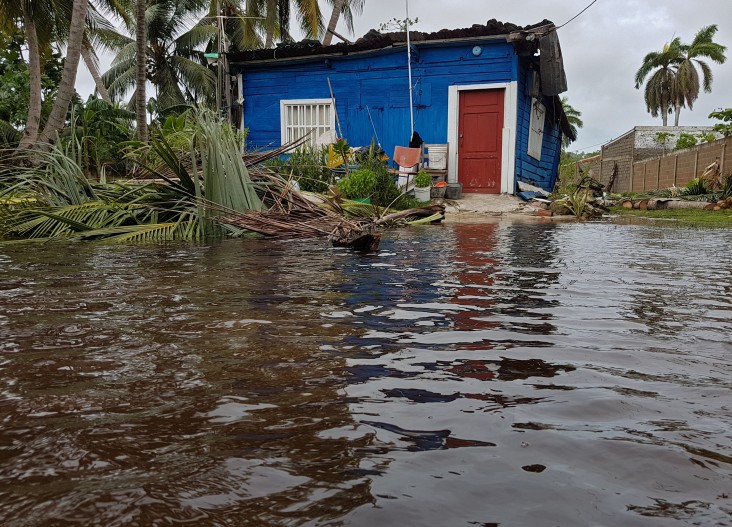- What We Do
- Agriculture and Food Security
- Democracy, Human Rights and Governance
- Economic Growth and Trade
- Education
- Environment and Global Climate Change
- Gender Equality and Women's Empowerment
- Global Health
- Humanitarian Assistance
- Transformation at USAID
- Water and Sanitation
- Working in Crises and Conflict
- U.S. Global Development Lab
Speeches Shim

Latest Fact Sheet
12.30.2020 Latin American Storms Response Map ![]() (pdf - 3 MB)
(pdf - 3 MB)
Latest Venezuela Fact Sheet
view text version [pdf, 508kb]
Hoja informativa en español [pdf, 507kb]
12.16.2020 - Venezuela Regional Crisis Program Map ![]() (pdf - 428k)
(pdf - 428k)
Mapa regional de Venezuela - en español [pdf, 496kb]
Key Developments
Hurricane Iota passed over Colombia’s Providencia, San Andres, and Santa Catalina islands on November 16 as a Category 5 hurricane. The storm generated heavy rainfall, flooding, and storm surges, affecting 72,900 people and causing widespread damage. Hurricane Iota exacerbated the impacts of Hurricane Eta, which made landfall just two weeks before.
On November 17, U.S. Ambassador to Colombia Phillip S. Goldberg declared a disaster due to the effects of Hurricane Iota. In response, USAID’s Bureau for Humanitarian Assistance (USAID/BHA) provided $100,000s for relief supplies. In addition, USAID/BHA deployed a Disaster Assistance Response Team (DART) on November 17 to lead the U.S. humanitarian response efforts across Latin America.
USAID is also responding to a complex emergency stemming from an influx of people fleeing an economic and political crisis in Venezuela.
Approximately 1.7 million Venezuelans were residing in Colombia as of November, many of whom are in urgent need of humanitarian aid, heightened due to the COVID-19 pandemic. In FY 2020, the U.S. provided more than $200 million to support food, emergency health care including COVID-19 response, multipurpose cash assistance, nutrition, protection, and water, sanitation, and hygiene programs for vulnerable Venezuelans, Colombian returnees, and host communities in Colombia.
Background
Since 2014, deteriorating economic and political conditions in the Bolivarian Republic of Venezuela—marked by devastating hyperinflation, shortages of basic medicines, and limited food availability—have contributed to increasing humanitarian needs. The 2020 UN Humanitarian Response Plan identified food security, health, nutrition, and protection as urgent needs inside Venezuela. Severe food and medicine shortages have contributed to extensive outmigration and an influx of Venezuelans into other countries in the region, primarily to Brazil, Chile, Colombia, Ecuador, and Peru, as well as smaller populations to Argentina, Mexico, Panama, and several Caribbean and Central American countries. The UN estimates that more than 5.4 million Venezuelans have left their country since 2014.
The population influx is straining the capacity of public services in some host communities, particularly in border areas of Brazil and Colombia. Recent assessments indicate food, health care services, nutrition assistance, protection, and WASH support are among the most urgent humanitarian needs of Venezuelans and host communities in border regions, particularly during the COVID-19 pandemic.
Please visit our web page for additional information.

Comment
Make a general inquiry or suggest an improvement.